Submitted by Aspergillus Administrator on 23 May 2011
The American Thoracic Society (ATS) is one of the most important bodies working towards better diagnosis and treatment of all diseases relating to the lungs.
This week they have released the following statement about a meeting that will take place on Wednesday 25th May 2011 at the annual scientific conference run by the ATS: ATS 2011
“We’ve described a new disease called Iraq-Afghanistan War lung injury (IAW-LI), among soldiers deployed to these countries as part of Operation Iraqi Freedom, Operation Enduring Freedom, and Operation New Dawn” said Anthony Szema, MD, who will co-chair with Dr. Rose. “Not only do soldiers deployed to Iraq and Afghanistan suffer serious respiratory problems at a rate seven times that of soldiers deployed elsewhere, but the respiratory issues they present with show a unique pattern of fixed obstruction in half of cases, while most of the rest are clinically-reversible new-onset asthma, in addition to the rare interstitial lung disease called nonspecific interstitial pneumonitis associated with inhalation of titanium and iron.”
Iraq and Afghanistan veterans are faced with a barrage of respiratory insults, including: 1) dust from the sand, 2) smoke from the burn pits, 3) aerosolized metals and chemicals from exploded IEDs, associated with 4) blast overpressure or shock waves to the lung, 5) outdoor aeroallergens such as date pollen, and 6) indoor aeroallergens such as mold aspergillus. Dr. Szema and colleagues have experimentally exposed mouse models to samples of the dust taken from Iraq and Afghanistan and found that it produces extreme histological responses, underscoring the severe exposures that these soldiers undergo.
It isn’t difficult to see that soldiers operating in one of the dustiest environments in the world will be breathing in a lot of microbial dust raised by weather conditions and explosions, not to mention the physical injury to lungs mentioned above and other inhaled toxins.
That dust will contain a lot of moulds and a lot of Aspergillus and given that we know that Aspergillus in particular can cause respiratory problems ranging from allergy, asthma exacerbations, sinusitis to invasive infections with deadly results, it would not be a major surprise if Aspergillus was involved in Iraq-Afghanistan War lung injury. Where possible perhaps the development & wearing of filtration masks should be a priority for soldiers and all workers in such areas of the world?
Source story: Newswise
News archives
-
Title
Date


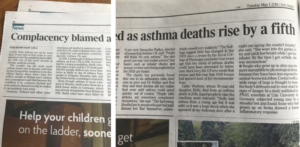

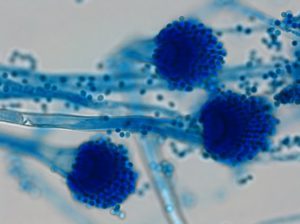
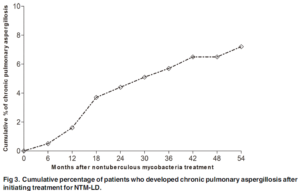
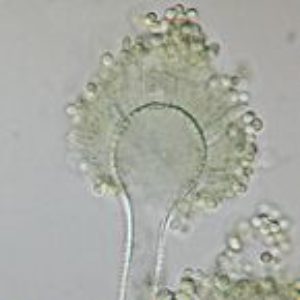


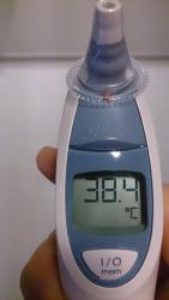
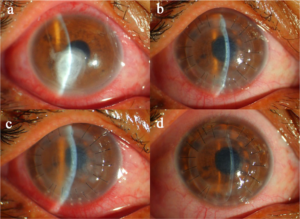
 ,
,  ,
, 